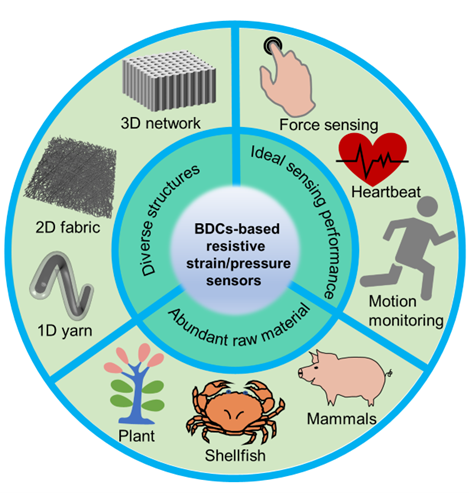L. Wu#, X.Y. Shi#, P. Das, Z.-S. Wu*
Science China Materials, 2023, 66.
DOI: 10.1007/s40843-022-2397-y [PDF]

Resistive strain/pressure sensors have a rapidly growing demand due to their irreplaceable role in the fields of motor behavior monitoring, human health diagnosis, and human machine interface. Notably, material and structural design have significant impacts on the performance of resistive strain/pressure sensors. Biomass-derived carbons (BDCs) are considered as popular contenders for realizing the fabrication of resistive strain/pressure sensors because of their excellent properties such as abundant sources, diverse structures, and satisfactory electrical conductivity. This review presents the recent progress of BDCs in the field of resistive strain/pressure sensors and their key challenges. First, the classification methods, evaluation criteria and sensing mechanisms of previously reported resistive strain/pressure sensors are systematically outlined and discussed. Subsequently, the preparation of BDCs with different macrostructures, including 1D, 2D, and 3D structures, and their recent progress in the field of resistive strain/pressure sensors are summarized. Next, the respective advantages of BDCs with different macroscopic structures in the field of resistive strain/pressure sensors are carefully analyzed, and the relationship between the different structures and the comprehensive sensing performance of the devices is discussed. Finally, the future prospects and major challenges are proposed for BDC-based resistive strain/pressure sensors, and some key future research directions are provided.